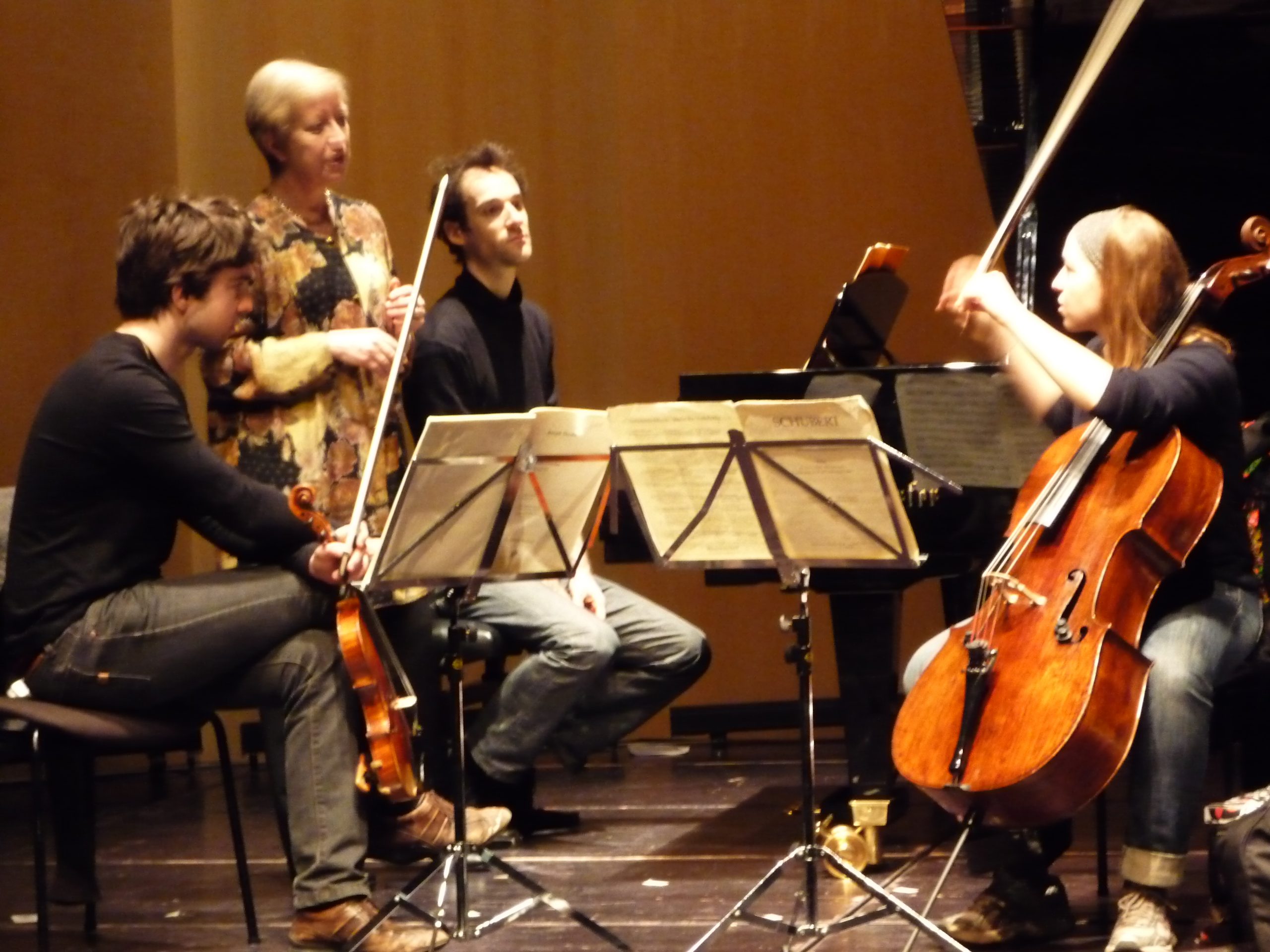 The final of the Graz competition ended last night with no first prize being awarded. We had been following jury rules which obliged us to give our scores anonymously, and to refrain from discussing the competitors with one another. Consequently the result of every round was a surprise for us, and last night was no exception.
The final of the Graz competition ended last night with no first prize being awarded. We had been following jury rules which obliged us to give our scores anonymously, and to refrain from discussing the competitors with one another. Consequently the result of every round was a surprise for us, and last night was no exception.
It turned out that we had been a jury with very different views. As discussion was not possible anyway, we simply voted and let the arithmetic take the strain. It revealed that there was no score high enough to justify awarding a first prize. The two highest-scoring groups had marks so close to one another that it seemed wrong to give them different prizes, so we gave two second prizes – meaning that each group got the full amount of money for the second prize, not that it was split between them. The sums also revealed that there was no third prize. This was an unusual result overall, but one which the jury – once we had got used to the idea – felt we could live with. So the two second prizes were shared by two very talented and very different groups – the Trio Suyana from Paris (Davide and Alexandre Castro-Balbi on violin and cello, Thibaud Epp on piano) and the Trio Shaykin/Kravtsov/Zemlerub from Russia.
It was very clear in the final round that the late Schubert trios had really sorted out the men from the boys, or the sheep from the goats, or whatever metaphor would be appropriate for Schubert. The enormous structure of these pieces, with their subtle shading and their constant changes of mood, were too big a challenge for almost everyone. Sheer instrumental skill, of which there was plenty, was not enough to steer the players safely through these great musical journeys. An intellectual grasp was necessary, combined with a lively response to the shifting light and dark of the music. Perhaps a free choice of repertoire would have produced a different result in the final round, but with late Schubert as compulsory repertoire, the first prize remained elusive.




0 Comments